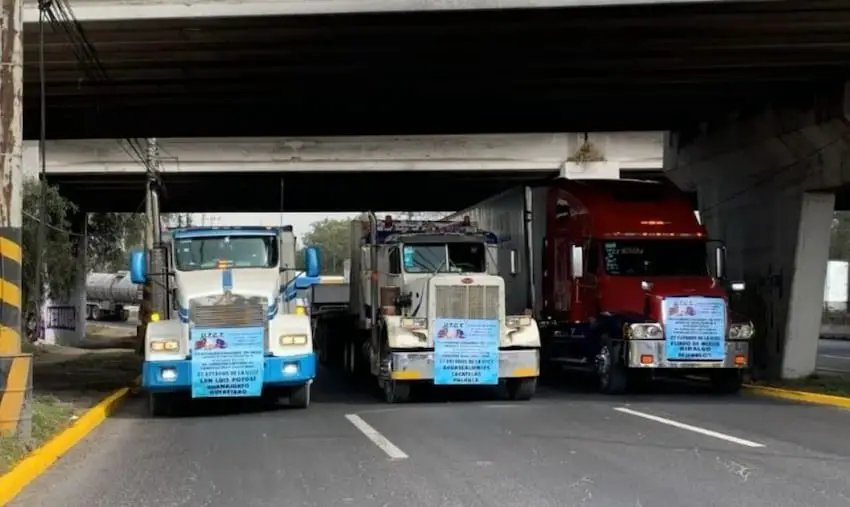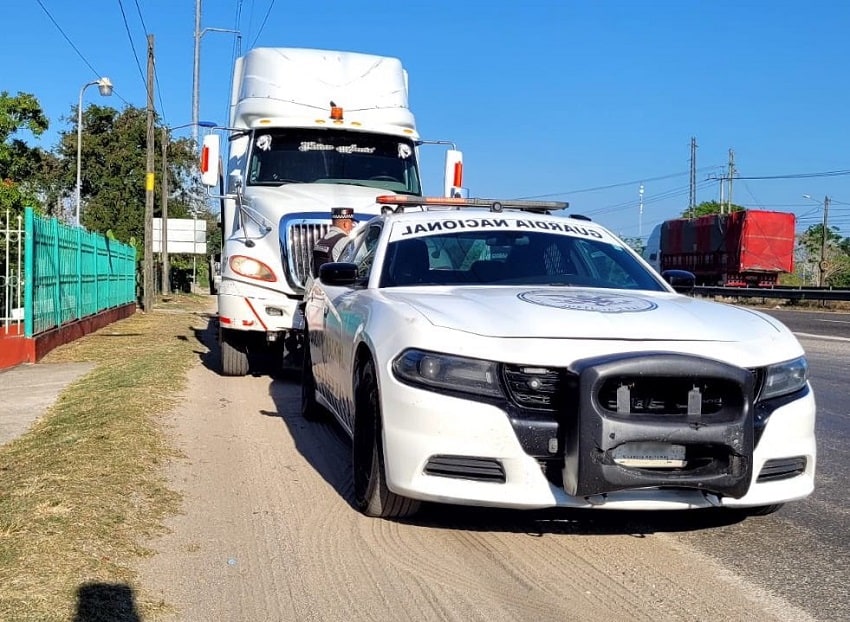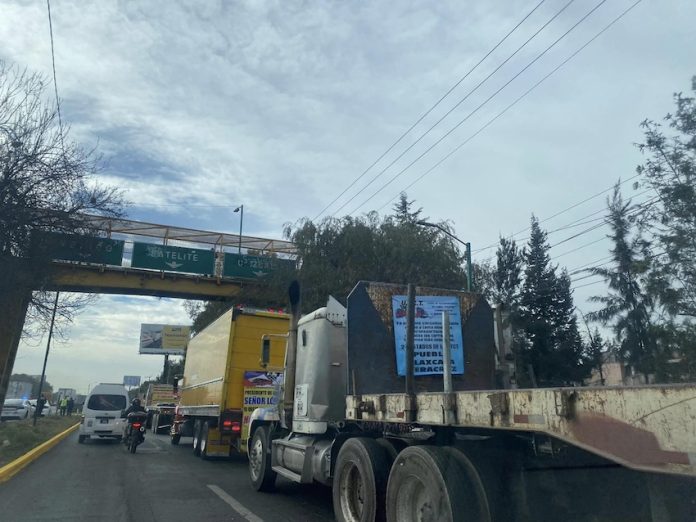Truck drivers have called off a protest blockade on the Querétaro-México highway after being granted a meeting with the Interior Ministry (Segob) to discuss their concerns about increasing violent robberies and extortion on the roads.
At least 100 trucks had been advancing in a slow caravan along the Querétaro-México highway on Wednesday, causing hours of snarled traffic on this major national route.

Most of the protesting truckers were members of the Union of Freight and Tourism Transporters (UTCT) or the Mexican Alliance of Transporters Organization (Amotac). They came from 27 states around the country, including Veracruz, Puebla, Zacatecas, Aguascalientes, Hidalgo, Guerrero, San Luis Potosí, Sinaloa and Morelos.
They gathered at kilometer 40 of the highway on Wednesday morning and drove slowly down the central lanes toward the capital, carrying banners bearing slogans such as “Mr López Obrador, no more murders and no more robberies” and “No more restricted zones.”
Just after midday on Wednesday, the federal roads and bridges service (Capufe) reported that there was a 10-kilometer line of traffic on the highway. The road was cleared again by about 5:30 p.m., after Segob agreed to meet with the drivers.
The truckers were protesting a wave of insecurity on Mexico’s highways that has seen 85,000 freight robberies during the administration of President López Obrador, according to a report by the Confederation of Industrial Chambers (Concamin). The National Chamber of Freight Transportation (Canacar) reported nearly 13,000 cargo robberies in 2023 alone, mainly targeting oil, chemical and clothing trucks.

The México-Querétaro highway has become a particular flashpoint for these robberies, with several violent attacks and even murders of truck drivers reported in recent weeks. Amotac previously protested the violence on the highway in October 2023.
Highways in Veracruz, Puebla and Guerrero have also been severely affected. A further 500 truckers protested in Veracruz on Wednesday, demanding that the mayor of Veracruz update the documentation required for them to enter the region.
“We are not here to fight for anything illegal,” said Valentín Romero Trujillo, an advisor to Amotac. “We are demanding more safety on the roads. Today, we have many operators who no longer want to work; we have had 25 operators shot dead in two months.”
On Feb. 5, 15 industry organizations, including the Mexican-American Transporters Federation (Fematrac) and the Mexican Transporters Alliance (AMT) are planning another national road strike of up to 5,000 vehicles, demanding greater National Guard presence on dangerous highways, tougher penalties against truck robbers and greater support for victims’ families.
